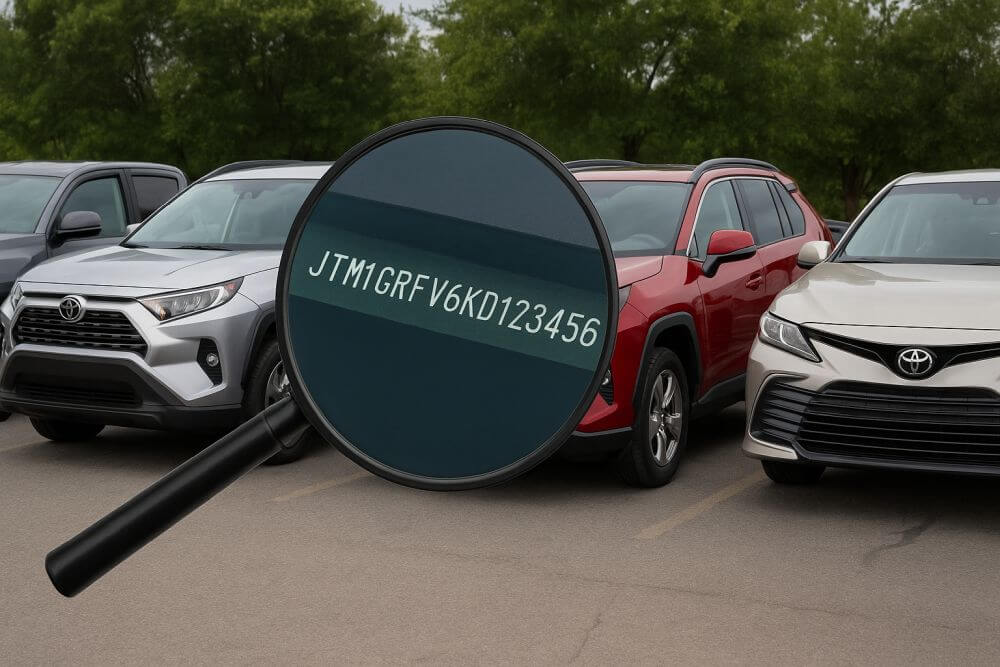In the world of used car buying and ownership, accurately determining a vehicle’s value is crucial. Whether you’re purchasing a used car or evaluating the worth of your current vehicle, knowing its value can guide your financial decisions and negotiations. Two common methods for assessing car value include using the Vehicle Identification Number (VIN) and the license plate. Each has its benefits, but which is better for checking car value? Understanding the differences between these methods is essential for making informed choices. For those interested in VIN checking, it’s important to explore how VIN-based checks can provide a comprehensive view of a car’s history and specifications.

While both VIN and license plate checks offer insights into a vehicle’s background, they serve different purposes and provide varying levels of detail. By comparing these methods, you can determine which is more suitable for your specific needs. This article will help you compare VIN and license plate checks to understand which is the better option for evaluating car value.
Understanding VIN and License Plate Checks
The Vehicle Identification Number (VIN) is a unique 17-character code assigned to every vehicle. It serves as the vehicle’s fingerprint, providing detailed information about its make, model, year, and place of manufacture. On the other hand, a license plate is a set of alphanumeric characters assigned to a vehicle upon registration. It primarily serves as a means of identification for legal and administrative purposes.
Advantages of VIN Checks
- Comprehensive Vehicle History: VIN checks offer extensive details about a car’s past, including accident history, title status, and any recalls. This information is crucial for understanding potential risks and assessing vehicle value.
- Accurate Specifications: By decoding a VIN, you can access accurate specifications such as engine type, transmission, and factory-installed options. This helps in verifying that the vehicle’s features match the seller’s claims.
- Ownership Records: A VIN check provides insights into previous ownership history, including the number of owners and any reported thefts or liens.
Benefits of License Plate Checks
- Quick Identification: License plate checks are typically faster and more straightforward for identifying a vehicle, especially in routine traffic stops or parking situations.
- Current Registration Status: These checks can reveal the current registration status and any associated legal issues, such as expired tags or outstanding fines.
Why VIN-Based Checks Are More Reliable for Valuation
When it comes to assessing car value, VIN-based checks provide a more reliable and detailed picture than license plate checks. The comprehensive nature of VIN data allows buyers and owners to make informed decisions by understanding the full scope of a vehicle’s history and specifications. This depth of information is particularly useful for determining if a car is priced appropriately or if there are any hidden issues that could affect its value.
How VIN Decoder Tools Enhance the Process
VIN decoder tools are essential for extracting detailed information from the VIN. These tools can reveal everything from the vehicle’s manufacturing details to its optional features. By using a reliable VIN decoder, you can ensure that the vehicle’s specifications align with what is advertised. This transparency is crucial for buyers and sellers alike, providing a solid foundation for negotiations and valuation assessments.
For an accurate and free VIN decoding experience, consider using VinCheckPro’s VIN decoder. This tool provides detailed reports that can aid in evaluating a vehicle’s worth, ensuring you make informed decisions whether you’re buying or selling.
Frequently Asked Questions (FAQ)
What is the main difference between VIN and license plate checks?
VIN checks provide comprehensive vehicle history and specifications, while license plate checks mainly verify registration status and legal standing.
Can a license plate check provide vehicle history?
No, license plate checks typically do not include detailed vehicle history such as accidents or ownership records. For that information, a VIN check is required.
Is a VIN check more accurate than a license plate check?
Yes, VIN checks are generally more accurate as they provide detailed history and specifications, making them more reliable for assessing car value.
How can I perform a VIN check?
You can perform a VIN check by using online tools like VinCheckPro’s free VIN decoder, which provides detailed reports on a vehicle’s history and specifications.
Are VIN checks necessary for buying a used car?
Yes, VIN checks are crucial when buying a used car as they reveal important details about the vehicle’s past, helping you make an informed purchase decision.

